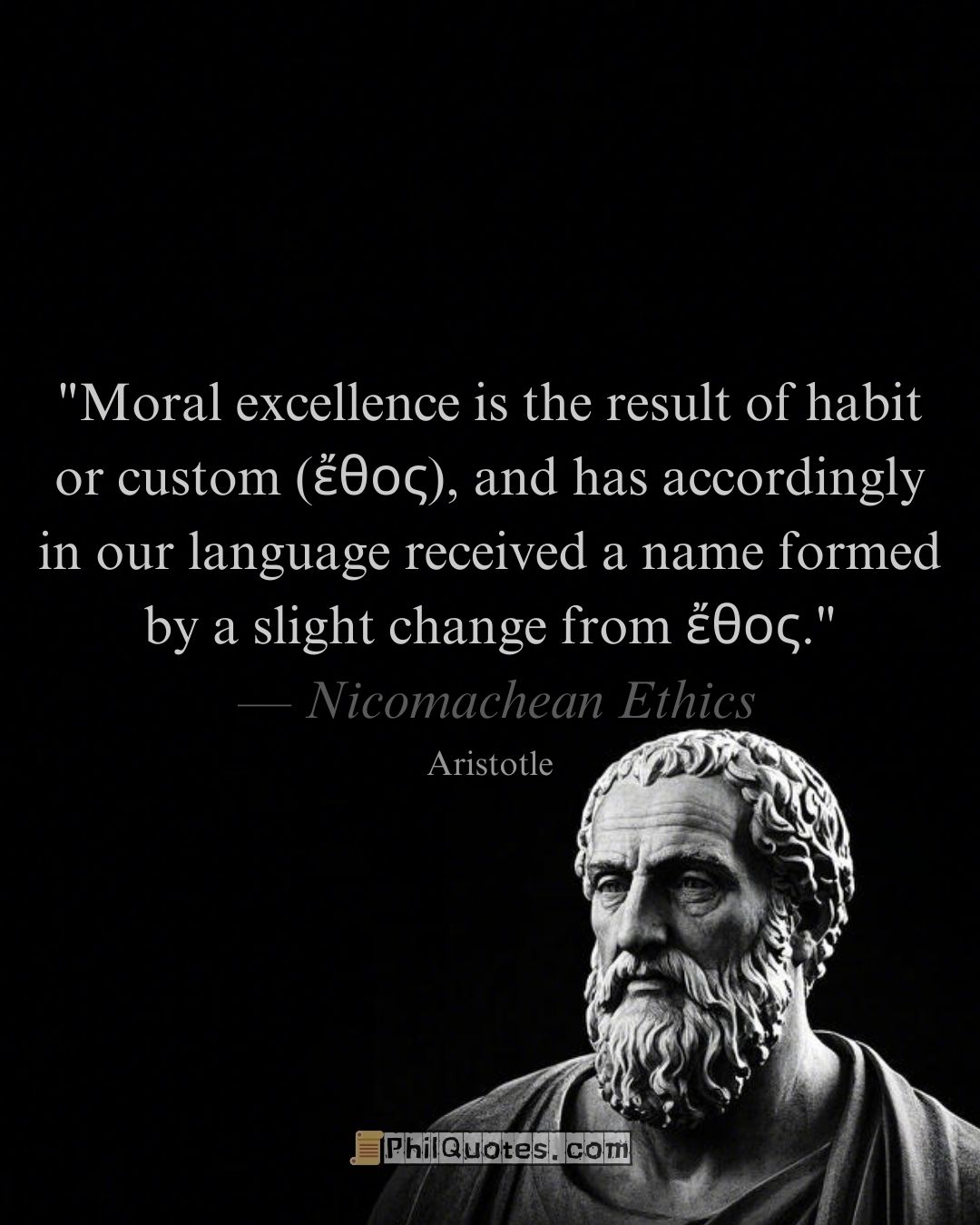
Quote
“Moral excellence is the result of habit or custom (ἔθος), and has accordingly in our language received a name formed by a slight change from ἔθος.”
— Aristotle, Nicomachean Ethics, Book II, Chapter 1
Core Idea
True virtue isn’t about being born “good” – it’s a lifelong practice. Like learning to play guitar through daily chords, moral strength grows through small, repeated actions. Even the Greek word for virtue (ethos) literally comes from “habit” (ἔθος).
Why It Matters Today
🔥 The 10-Minute Kindness Rule
Do one tiny good deed daily (help a classmate with books → build empathy muscles → turn compassion into automatic behavior → become “the kind person” everyone trusts.
📚 Homework Honesty Hack
Admit when you don’t know an answer → embrace growth over grades → train intellectual integrity → build a reputation as someone who values truth.
♻️ Eco-Habits = Moral Muscle
Use reusable bottles for 30 days → normalize sustainability → influence friends to join → transform personal habit into collective virtue.
Action Steps
- Start a 21-day “virtue challenge” (e.g., 1 act of courage/day)
- Track progress in a journal with emojis 😇 → 😤 → 💪
- Share your journey – habits grow stronger when witnessed